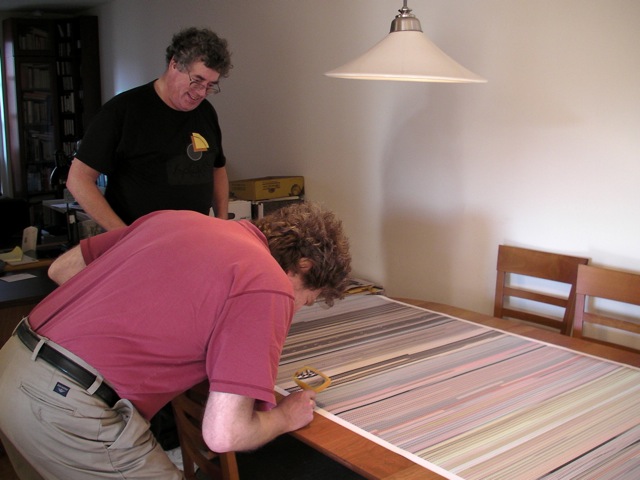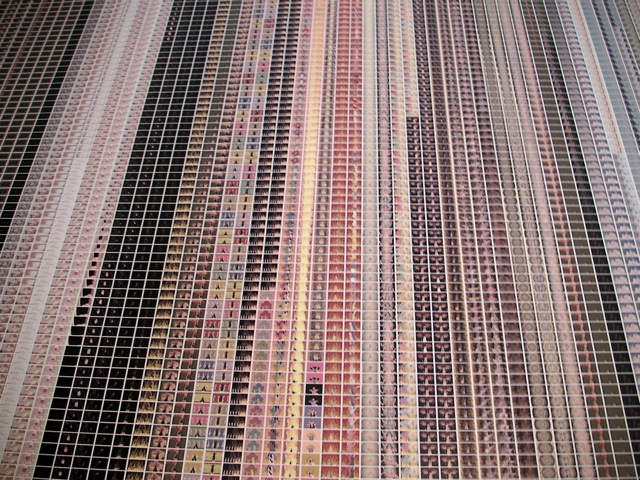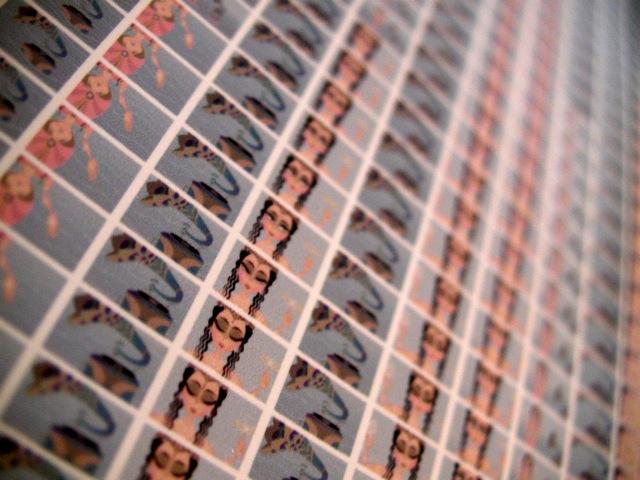Bill Cheswick prints entire films – I’m talkin’ every single frame of the film – on giant rolls of paper. Because Sita is open licensed, he was able to make cool new art with it without my permission, but he gave me this 30-foot-long print anyway!
From Cheswick’s site:
Of course, I would like to try this on many other movies. The problem is one of copyright violation. While some argue this is fair use, it is clearly debatable, and I am not trying to blaze new legal ground here.
I’m glad Sita’s open license removes that obstacle. I wouldn’t want to be left out of this party!




You should seriously try to offer that through your store! If you two could work out a creator endorsement deal and put some nice Sita themed borders around the edge, it would make a really cool bit of Sita merch.
I know. Bill developed it at a corporate lab, and its their job to offer it commercially – and they haven’t yet. Of course the longer they take, the sooner someone else will reverse-engineer it and offer similar prints first.
I would love to see this with so many different films!! Star Wars, What Dreams May Come, Blade Runner…
Bill — we’ll happily be your tester for commercial viability. Will the lab be willing to supply some at a rate we can afford to sell, if we give them complete data about the sales so they can decide whether they want to get in on this game?
The store at http://questioncopyright.com/ isn’t here to corner the market; it’s here to demonstrate that selling containers for free content works (c.f. http://questioncopyright.org/understanding_free_content). So we’re not territorial about this; we’re happy to do your market research :-).
We have a number of ideas about how to sell these, and are checking out printing costs, and AT&T’s role and interest, given that we work in AT&T Research, and our
IP belongs to them.
A key marketing question: what is a reasonable price for a 1×10 yard poster of a movie? How about wallpaper?
We are checking into general printing costs and print runs of various sizes.
There are many movies I’d love to see in this form: Star Wars, Roger Rabbit, Princess Bride, Fantasia, some old sweeping Technicolor classics, etc. I need to get permission to even try it (say, for our lab walls) which means I have to get in touch with copyright owners. I am not trying to pull anyone’s chain here.
There are a few Warner Bros. cartoons that are out of copyright, and they look terrific. Most of the rest of the stuff is uninteresting, or monochrome, which doesn’t show up as nicely.
As for your free market research, I’d love to try it. But I am not counting on AT&T being very cooperative: if it doesn’t appear on a phone bill, it takes a lot of extra work to get it going. I will keep working on this.
And Nina, thanks for your time and comments. I will crank out another version to your specs tomorrow.
ches
I see a new trend in wallpaper!
In the silent era, in order to register a film with the copyright office, every frame had to be printed on a separate piece of photographic paper and submitted with the application. It’s interesting to note that as all the prints of many of these early films, produced on volatile nitrate stock, have been lost, the copyright records, rephotographed on an animation stand, allowed the films to be saved for posterity. I’m not arguing for the predations of modern copyright, as modern technology and the free market is quite capable of preserving films, it’s just ironic that the legal process in place at that time was used to save some of these early films.
That old copyright system, where everything had to be carefully registered (at some cost to the registrant), was a good idea and I’m in favor of returning to it, if there’s to be any “IP” at all.
@Nina
The problem with the old system is the “at some cost to the registrant” part… That cost could potentially be quite high, possibly preventing a small, low budget producer from obtaining copyright, while a large, high budget producer could, so the high budget producer gains rights that aren’t available to the low budget producer. A high budget producer could abuse this right by copyrighting a work derived (such as a compilation) from an uncopyrighted work by the low budget producer. If the copyrighted work is still similar enough to the original and is distributed widely, odds are pretty good that a customer will acquire the derived work first, and have no interest in purchasing the original.
I like the idea of requiring registration and renewal for copyright, as well as shorter terms (I doubt much software would survive a seventy year term when the hardware it runs on is obsolete in five for example), but it must be low cost or free to be fair.